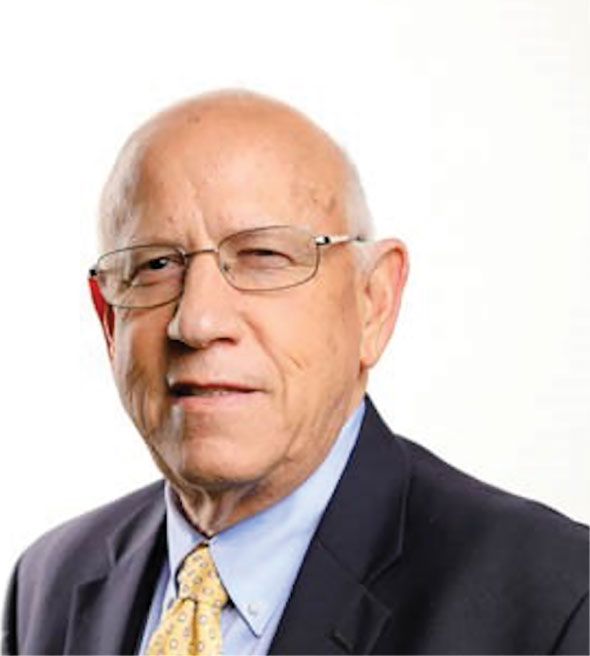Contract disputes between health care providers and insurance companies have become almost commonplace as providers fight to maximize their revenues and insurers fight to rein in rising costs, according to a report by the Center on Health Insurance Reforms at Georgetown University”™s Health Policy Institute.
At the same time, a Tarrytown-based health care provider and an insurer have agreed on a new contract after an approximately three-year hiatus.
ENT and Allergy Associates LLP (ENTA), which has more than 215 physicians spread among 43 offices in Westchester, Putnam, Orange, Dutchess, Rockland, Nassau, Suffolk, New York City and parts of New Jersey recently announced a contract agreement with Emblem Health GHI New York.

Under the new agreement, Emblem GHI (Group Health Insurance) New York members will once again have access to ENTA”™s ear, nose, throat and allergy specialists as in-network providers. Emblem Health provides benefits to nearly three million members. ENTA estimates it sees more than 90,000 patients each month.
As examples of what”™s happening around the country, the Georgetown report cited 100,000 UnitedHealthcare Medicare and commercial insurance members losing in-network access to eight Houston Methodist hospitals and other outpatient facilities when a contract renewal agreement could not be reached.
It highlighted a dispute between Highmark Health and the University of Pittsburgh Medical Center that became so prolonged and contentious it required involvement of the state”™s attorney general and U.S. Supreme Court.
“National insurer Cigna has disputed with provider systems across the country, from Dignity Health in California to Mission Hospital in North Carolina and Christus Health hospitals in Louisiana and Texas,” the Georgetown report said. “Contract disputes between payers and providers have increasingly dominated media headlines.”
Those included local headlines made when UnitedHealthcare and the Montefiore Health System failed to reach contract agreements by Jan. 1, cutting off in-network access to hospitals and physicians for tens of thousands in Westchester and nearby areas.
“We believe the Emblem contract with us is significant,” Robert Glazer, CEO of ENTA told the Business Journal. “We were contracted with Emblem up until three years ago and we came to an impasse with respect to the rates that were being paid to our physicians at that point in time.”
Glazer said that when ENTA went out-of network with Emblem many patients covered by them stopped coming to ENTA physicians. He explained patients choosing out-of-network services face higher out-of-pocket costs.
“People try to stay in-network to reduce their health costs,” Glazer said. “Our focus on providing quality healthcare services in an office-based setting reduces costs for both the patient and the insurer.”
Glazer said that ENTA and Emblem were able to come to a reasonable compromise that made both parties happy.
Among those again covered for in-network care from ENTA are employees of New York City agencies including the Department of Education, police and fire departments, Department of Sanitation, Housing Authority and Health and Hospitals Corp.
“Our area that we serve is probably a 150-mile radius, Southampton, Poughkeepsie, northern Jersey Shore. There are 22 million people who live inside that area,” Glazer said.
“Statistics show that 1.5% of the health-care dollar is spent on otolaryngology services and under 1% on allergy services. So, from an insurer”™s point of view we represent a very small piece of the health care dollar but a very important piece. A subspecialty like ours that”™s really geared to try to keep people out of the hospital, we”™re to the benefit of insurance companies if we can be in-network.”
Glazer said that while ENTA has arrangements with many insurance companies, few health insurance companies constitute more than 5% of the organization’s payer mix.
Glazer said that smaller physician groups negotiating with an insurance company may not have the leverage a larger group such as ENTA has during negotiations to tell the insurer that the rates it is offering are not what needs to be paid. At the same time, he points out that ultimately the insurance company may save money because there”™s no need for patients to obtain care from expensive institutions.
“I want to be on friendly terms with every insurance company, but I also want to ensure that our physicians are reimbursed appropriately,” Glazer said.
ENTA is working on expanding its services to include offering Covid-19 vaccinations and some of its offices have received necessary approvals although ENTA had not received a vaccine supply as of late January.
“Having a complement of already-trained allergists and nurses that can deliver these shots, we”™ve offered to open on Saturdays, which we”™re not normally opened on, just to provide shots because we recognize that people are really looking to get vaccinated,” Glazer said. “As a group we”™re really frontline.”
Glazer said that ENTA does work with pharmaceutical companies on clinical trials and wants to be progressive in all of its endeavors.
“We want to help get us back to normal. We”™re not going to get back to normal until there are more people vaccinated,” Glazer said, adding that vaccination, such as giving annual flu shots, normally is in the bailiwick of primary care physicians.
“We decided that we have the allergy nurses, we have the setup to do that and, provided the opportunity to get the vaccine, we want to help vaccinate the public.”
Glazer said that just as Covid affected small businesses, so too has it affected smaller otolaryngology and allergy practices and he expects to receive inquiries from practitioners looking to join ENTA.
“I think we”™re going to see additional growth this year,” Glazer said. “We have centralized systems. We have well-trained staff that can integrate other offices, so I”™m projecting that we will see further growth this year. We may even push out on the edges a little bit, maybe farther south in Jersey, maybe up the Hudson Valley and we”™re excited about that.”






















